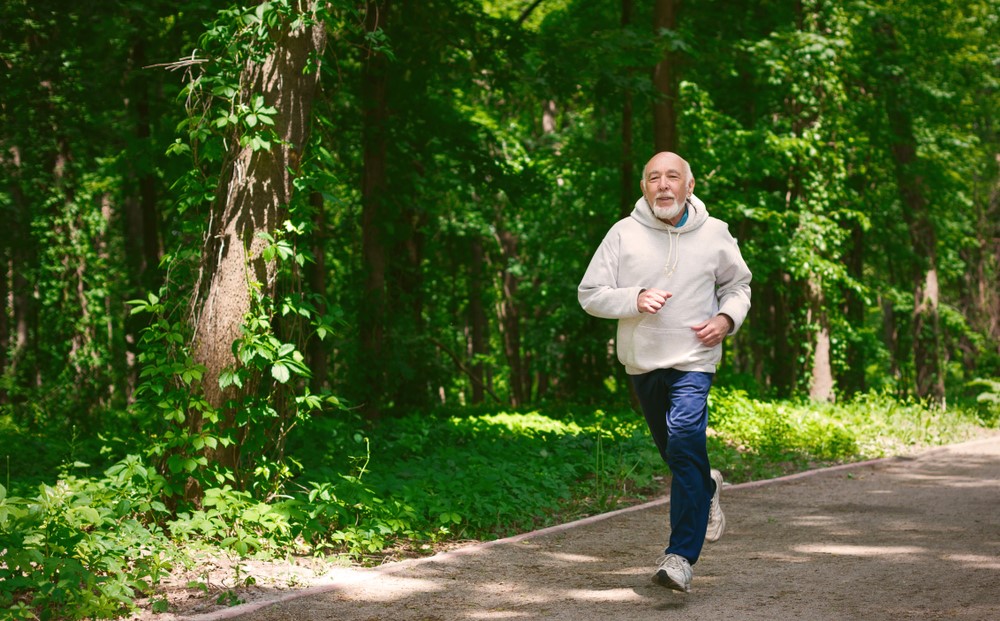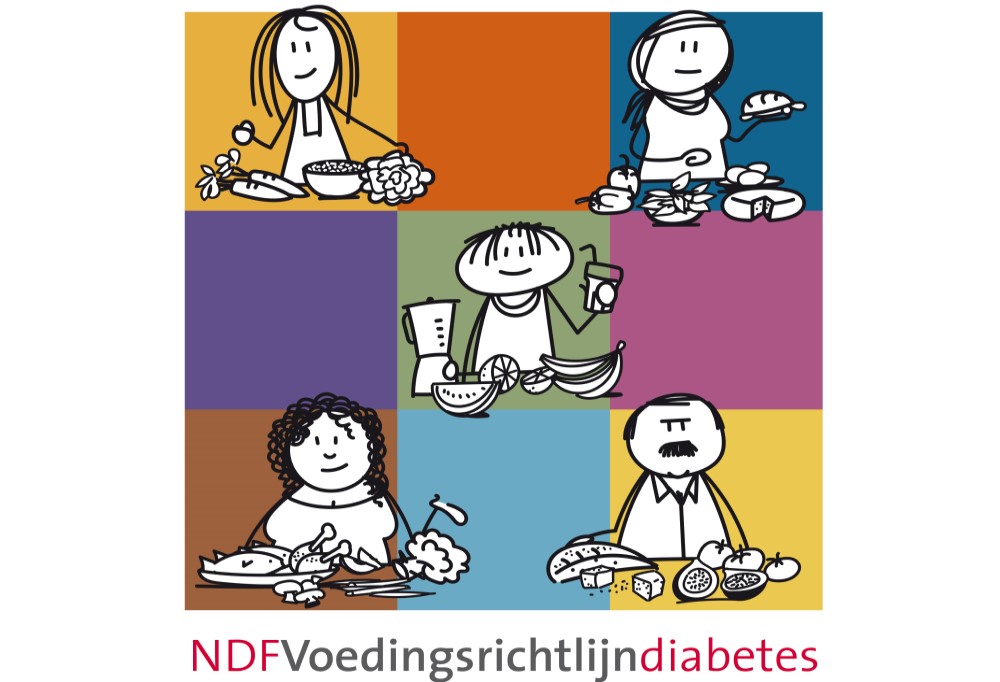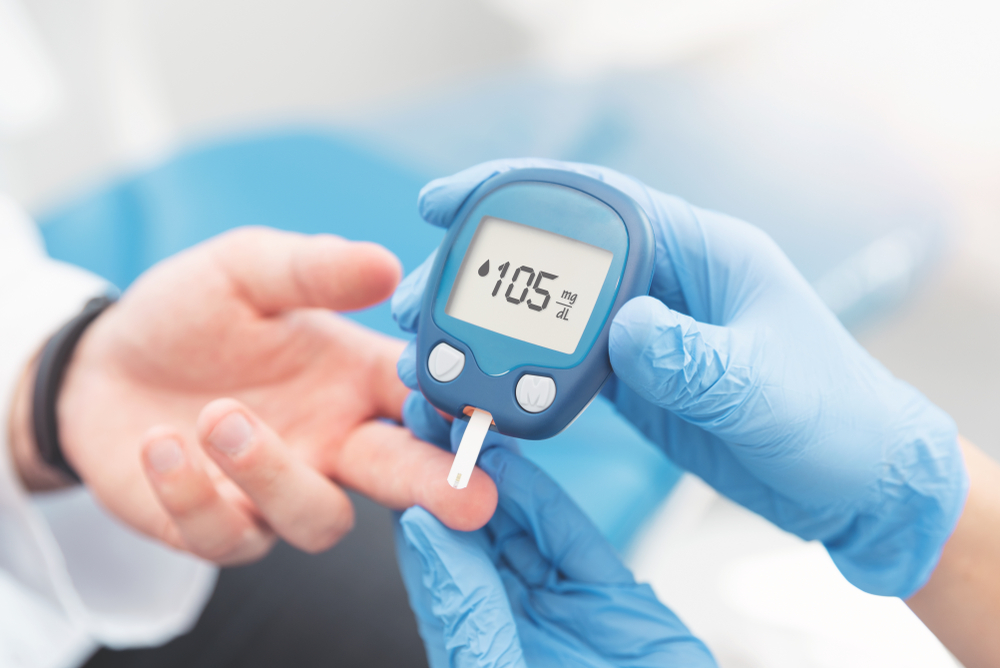Better diet against diabetes
One in every fifteen Dutch inhabitants has diabetes. This chronic condition is linked to our eating habits. That is why Wageningen scientists study how nutrition can contribute to preventing or treating diabetes. Cutting back on processed meats and increasing the intake of vegetables is proven to be effective. This fact has now been included in the latest dietary guidelines. Do you know how eating habits can help prevent or cure diabetes?
‘There is no single optimal diet to prevent or treat diabetes. Many roads lead to Rome’, says Edith Feskens, a professor with the Nutrition and Health department. The Diabetes Fund recently stated it expects over 1.4 million diabetes patients in the Netherlands in twenty years, compared to the current number of 1.1 million.
“We are able to prevent and treat type 2 diabetes with healthy nutrition”
Diet plays an essential part in treating diabetes types 1 and 2. A healthy eating pattern can also help prevent diabetes type 2, also known as late-onset diabetes. ‘With late-onset diabetes, a healthy diet and lifestyle can make the use of medication redundant’, Feskens says.
Risk factors
What diet works best depends, among other things, on the individual’s risk factors—for example, genetic predisposition, hypertension, a high cholesterol level or increased body weight. A relatively little-known diet called “DASH” appears to benefit people with hypertension. Feskens: ‘This diet consists of lots of vegetables and fruits, quite some dairy, which contains magnesium and calcium, and grains that contain potassium. The diet contains very little salt.’
Vegetables and exercise
The best advice that applies universally is still: stick to the food pyramid. Thus, eat lots of vegetables, fruits and fibres such as wholewheat grains. Don’t snack too much and beware of sugars and sweetened beverages, which includes fruit juices. Besides, it is essential to get sufficient exercise. ‘And, if you need to lose a substantial amount of weight, you may wish to follow a diet that restricts your calorie and carbohydrate intake for some weeks’, Feskens adds.

It is important to get sufficient exercise, for example through sports, hiking or gardening (photo: Shutterstock).
Personal preferences play a crucial role, Feskens stresses. ‘People will adhere to nutrition guidelines more easily if they are motivated.’ It is thus essential that recommendations are aligned with the individual’s lifestyle and personal preferences. ‘Many studies show that a Mediterranean diet with plenty of vegetables and fish and limited meat is beneficial. But not everyone likes olive oil.’
Climate
A healthy choice is often also a sustainable choice. ‘Following a vegetarian diet is no problem if you have diabetes. People are sometimes worried, but their concern is unfounded. Research shows that people who eat a lot of red meats such as beef, pork and lamb, as well as processed meat such as sausage, have an elevated risk of getting type 2 diabetes.’
Eating less meat also benefits the climate and environment, Feskens says. ‘Some people may be extra motivated to follow a specific diabetes diet if they are aware of the consequences their eating behaviour has in climate or animal welfare.’

The best advice is still: eat lots of fruits and vegetables and avoid red meat (photo: Shutterstock).
Consistent recommendations
Feskens and her colleagues at Human Nutrition in Wageningen conduct a great deal of research on the role of food in diabetes. Based on the most recent insights, they formulate recommendations for diabetes in collaboration with the Dutch Diabetes Federation. These guidelines aim to help health care professionals such as dieticians, health care practitioners and diabetes care specialists to provide unambiguous recommendations. ‘Some of these professionals completed their training years ago, while insights have changed. There are instances where a dietician recommends one approach, while the nurse recommends something different. This may confuse patients, which is why it is important to have a clear directive.’
Help in decision making
 The guidelines that have been released are very comprehensive and scientific. The most recent studies and meta-analyses that span multiple studies have been included, Feskens says. ‘The guidelines are not very concrete yet. We aim to further develop these with decision-making tools so that dieticians are provided with precise tools. Researcher Van Damme is involved in this further effort.’
The guidelines that have been released are very comprehensive and scientific. The most recent studies and meta-analyses that span multiple studies have been included, Feskens says. ‘The guidelines are not very concrete yet. We aim to further develop these with decision-making tools so that dieticians are provided with precise tools. Researcher Van Damme is involved in this further effort.’
Foodstuffs
Feskens began her research on nutrition and diabetes over three decades ago. Since then, there has been a significant shift in the research. ‘When I started out, we focussed on particular foodstuffs such as saturated fat and fibres. However, people don’t consume saturated fat, but, rather, meat, which also contains iron, or dairy, which is a source of calcium. Key is that people must eat a combination of healthy products and maintain a healthy diet to ensure they get enough nutrients on a daily basis.’
If the food contains a high number of calories, or energy, per gramme, this increases the risk of weight gain. The best approach is to eat food with a high nutritional density: food that contains many nutrients, Feskens stresses. ‘This applies universally, not just to prevent diabetes.’

One in every fifteen Dutch inhabitants has diabetes (photo: Shutterstock).
Personal health care
Another development is that there is increased attention for personal healthcare, such as tailored advice from a dietician. Previously, patients suffering from type 1 diabetes who had to inject insulin, all followed the same diet prescribed by a physician. ‘There, too, we see a shift towards individual guidelines.’ Feskens notes that it is not yet possible to provide personal guidelines based on blood sugar levels or intestinal bacteria. ‘However, much is already known about the general prevention of diabetes.’
Read more
- More on the nutritional guidelines Wageningen University & Research developed in collaboration with the Dutch Diabetes Federation (in Dutch)
- Faster recovery through a healthy lifestyle
- More about nutrition and health research of Wageningen University & Research
- Read this article in Dutch
- MOOC Nutrition and Disease Nutrition Heart disease and Diabetes


Can nutrition contribute to preventing type 1 diabetes?
Maria ask a question that I to would like to know more about.
I understand this article is only oriented towards researching and preventing the onset of type 2 diabetes, however, the article does not emphasize it enough. The welcoming paragraph talks about help preventing or curing diabetes with eating habits.
The global population already has a very wrong, mislead picture of diabetes; people do not know the difference between type 1 (autoimmune disease, where your own immune system, more specifically, your own cytotoxic CD8+ T-cells attack and destroy insulin-producing beta cells in the islets of Langerhans, found in the pancreas) and type 2 diabetes (metabolic disease linked to obesity and other lifestyle factors, causing insulin resistance). Thus, completely different diseases.
The news are always discussing and talking about ”diabetes”, when actually only type 2 diabetes is being talked about. And that causes the society to create a stigma, and a stamp to type 1 diabetics, who in fact have nothing to do with lifestyle choices or obesity, and cannot certainly be cured by diet. It’s very unfortunate that even in 2020, these 2 different diseases still get mixed to one another.
For the other commentors, Maria and Yngve:
Type 1 diabetes cannot be cured nor prevented with nutrition or diet. It’s a life-long disease caused by your ”faulty” immune system that destroyed your own insulin-producing cells. Left untreated without insulin, a type 1 diabetic will end up in a diabetic ketoacidosis, coma, and death. A type 2 diabetic can never develop a diabetic ketoacidosis as their insulin-producing cells have not been destroyed, like a type 1 diabetic’s have.
Esther, thank you for your answer, it was really interesting!
An interesting article, thank you, hopping to add more detailed information about diet-gene interaction which belongs to type 2 diabetes
I was diagnosed of Type 2 DIABETES about 4 years ago. I was constantly dehydration and gained weight. I was placed on metformin but worsened over time. My doctor introduced me to Herbal HealthPoint and their successful Diabetes treatment, i immediately started on the herbal treatment. The Diabetes treatment reversed my Diabetes and i lost weights. Go to ww w. herbalhealthpoint. c om. The severe thirst and dehydration stopped. I am diabetes free